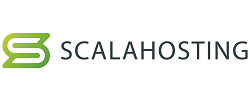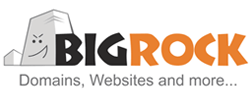Hostinger Web Hosting Review
Last updated on January 19, 2025 by RGB Web Tech
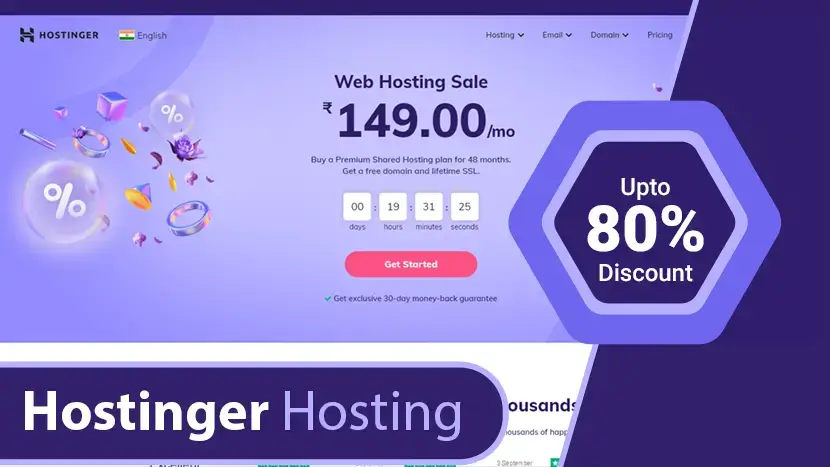
Hostinger is known for its inexpensive shared, cloud, and VPS hosting. All of their plans come with a 30-day money-back guarantee and a free website builder. Do these low-cost plans scrimp on features? Let’s take a closer look at Hostinger’s server speeds, performance, ease-of-use, and customer service.
Hostinger may be best known for its deeply discounted hosting. These Hostinger hosting plans are incredibly cheap compared to industry averages. All plans come with a 30-day free trial.
Hostinger provides free SSL certificates on all plans except for the entry-level Single Shared Hosting plan. SSL certificates are a must for all sites. Browsers may mark your site as ‘unsafe’ if you do not have an SSL certificate. Many hosting companies charge extra for SSL certificates.
Features
- Free Domain (₹679.00 value)
- Free SSL (₹855.00 value)
- Free Email
- 200 GB SSD Storage
- ~100000 Visits Monthly
- 30 Days Money Back Guarantee
- Daily Backups (₹660.00 value)
- Free CDN (₹545.00 value)
- Cloudflare Protected Nameservers
- 24/7/365 Support
- 99.9% Uptime Guarantee
- Unlimited Bandwidth
- Managed WordPress
- Unlimited Databases
- DNS Management
- 100 Websites
- 100 Subdomains
- Unlimited FTP Account
- Unlimited Cronjobs
What Are the Pros and Cons of Hostinger?
Pros
- Comprehensive knowledge base.
- User-friendly control panel.
- Competitive Pricing.
- Multiple Data Centers.
- Excellent onboarding.
- Free nightly backups.
- 30-day money-back guarantee.
- Free SSL & Domain name on entry-level plan
Cons
- Inconsistent website speed.
- Refund exceptions.
- Limited Support.
How is Hostinger’s Performance and Uptime?
Hostinger provides good server response speeds. Over the period from April 2019 through June 2019, our tests showed an average response of 509 ms.
Hostinger uses various technologies to boost site loading speeds, including:
1. SSDs: Solid-state drives are faster and more reliable than HDDs (hard-disk drives).
2. HTTP/2 and HTTP/3 (Quic): This is a network protocol that increases speed.
3. PHP 7: Most modern dynamic websites (like those built with WordPress) use the PHP language. PHP 7 provides greater speed and reliability.
4. Litespeed: Litespeed is a brand of web servers known for its speed.
5. GZIP compression: This is a form of file compression used to increase speed.
Uptime refers to the amount of time that servers are up and working correctly from the host’s end. A high uptime indicates that a host is stable, well-built, and can fend off network threats.
Hostinger provides a 99.9% uptime guarantee.
How Does Hostinger Keep Your Site Secure?
Hostinger’s SSL security guarantees lifetime security. Their web hosting plan offers a free SSL certificate to provide a safe online environment as it offers the highest level of encryption and immediate access results. Their servers have advanced security modules (such as mod_security, Suhosin PHP hardening, PHP open_basedir protection, and others) that give the highest security level available today.
Their free SSL certificate will ensure the safety of their client’s data including their clients’ target audience. Hostinger’s SSL for WordPress will also protect their clients’ blogs or e-commerce shops, ensuring the safety and reliability of every online transaction. The encryption, which protects their client’s data from theft and any other malignant act, is the strongest form of encryption in the open market and follows the SSL protocol – a guaranteed security service of Hostinger.
Hostinger’s Cloudflare is a CDN (Content Delivery Network) that not only speeds up your website’s loading speed but also protects it from intrusions and DDoS attacks. All of their hosting plans fully support Cloudflare that establishes a secure connection for sensitive data protecting their clients’ websites. This security service requires an additional fee before setting up.
Does Hostinger Handle Site Backups?
Hostinger provides daily backups with the majority of their hosting plans – the only plans that have weekly backups are their Shared Single and Premium hosting plans.
Their hPanel contains backup features that allow you to backup your files and data You can download both the website files and the database when backing up your site manually. In your hPanel, backups can be made by accessing your Backups option under the Files section. Click on Select near Generate new backup section, give it some time, your new Files and Databases backups will be made.
How is Hostinger’s Help and Support?
Hostinger provides 24/7 support. You have 2 main options.
Hostinger knowledge base – Consists of hundreds of tutorials and solutions to common issues. It’s easy to search, and from what I see, the answers are all easy to understand.
Live chat support – Available 24/7, every day of the year.
Hostinger is also active on social media and usually responds to messages and posts within a few hours.
FAQs - Hostinger Web Hosting
1. Which Company Owns Hostinger?
Answer : Established in 2004, Hostinger now has over 29 million users, collectively with its subsidiaries in 178 countries. Hostinger is the parent company of 000Webhost, Niagahoster and Weblink.
2. Which Languages Does Hostinger Support Team Speak?
Answer : Their customer support provides support in English for all locales. Additional languages they speak are Lithuanian, Portuguese and Brazilian Portuguese, Indonesian and Malaysian, Spanish, Russian, Ukrainian, French, Arabic, Thai, Vietnamese and Chinese.
3. What Kind of Support Do I Get With Hostinger?
Answer : Hostinger offers 24/7/365 support via live chat.
4. Where are Hostinger’s Servers Located?
Answer : Their servers are located all around the world. They have datacenters in Europe (the Netherlands, Lithuania, the United Kingdom), Asia (Singapore), North America (the USA).
5. What is Hostinger's Cheapest Hosting Plan?
Answer : Hostinger cheapest plan is their Single shared hosting package, which costs $1.39 per month.
6. Does Hostinger Have a cPanel?
Answer : Hostinger does not provide the classic cPanel to manage domain and hosting accounts. It has its own control panel, which is known as hPanel.
7. What are the types of web hosting?
Answer : This answer will be different for everyone. It depends on the type of website you have, the resources you need, your budget, and traffic.We gave our top recommendation for each category in this guide, so that’s the best place for you to start your search.Once you know what you need, you can narrow your options. To figure out what category you fall in, here’s a quick recap of the different hosting types
Conclusion
Hostinger is a user-friendly, secure, reliable, and affordable hosting option, especially if you are just starting out with your website.
Alternatives - Web Hosting Providers
If you want to explore more web hosting plans, here is some web hosting services provider companies as below:
Read More : You can explore here 30+ Best Web Hosting and Domain name Providers 2023
Video - Best Web Hosting For Small Business
Affordable Website Hosting for your domainIf you found this article helpful, we encourage you to share it on your social media platforms—because sharing is caring! For more information about article submissions on our website, feel free to reach out to us via email.
Send an emailWritten by RGB Web Tech
Latest Technology Trends
Latest technology trends shaping the future, including AI advancements, blockchain innovation, 5G connectivity, IoT integration, and sustainable tech solutions. Explore breakthroughs in quantum computing, cybersecurity, augmented reality, and edge computing. Stay ahead with insights into transformative technologies driving innovation across industries and revolutionizing how we live, work, and connect.
HostGator Web Hosting Review ( Web Hosting Plans for All Business)
Last updated on January 19, 2025 by RGB Web Tech
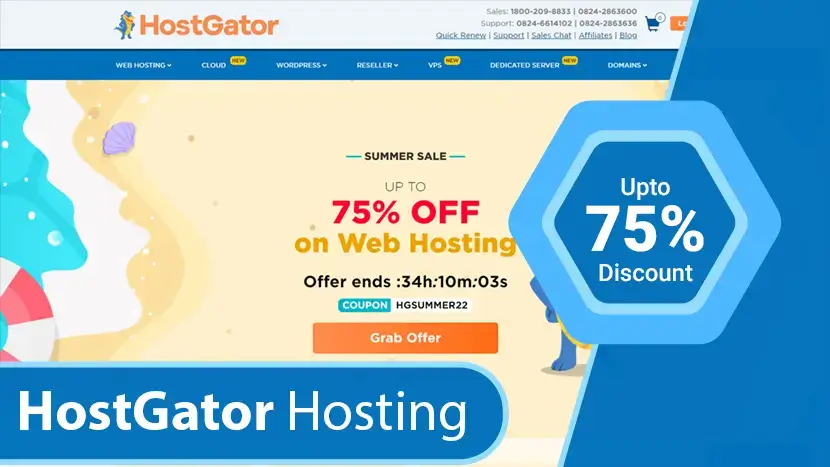
Given that HostGator has a lot to like and very few things to dislike, you should definitely try the company if you own a website or plan to build one.
If the web host does not make a good fit for your website, the 45-day money-back guarantee allows you to walk away without losing your money.
Having been around for more than a decade, HostGator is one of the most trusted and recognized web hosts. It excels in several areas including customer support, hosting flexibility, uptime, shared hosting, plus so much more.
This excellence in several aspects of web hosting coupled with the company’s experience, array of features, and performance makes HostGator a smart choice for any website owner.
Regardless of where you are in the website-building cycle, HostGator has something for you.
You can begin building your website using their drag-and-drop Website Builder. If you’re at the other end of the spectrum, you can enlist the help of HostGator’s dedicated Migrations Team to transfer your website and configure it for optimal performance on their platform – for free.
Features
- 1-Click WordPress Installation
- Free SSL Certificate
- Unmetered Disk Space & Bandwidth
- Easy-To-Use cPanel
- E-commerce Ready
- Drag & Drop Templates
- 24/7/365 Technical Support
- 45 days Money-Back Guarantee
What Are the Pros and Cons of HostGator?
So, is HostGator the right web host for you?
Well, given the fact that HostGator gives you a simple way to build and manage your site, provides you with all the resources you’ll need to deliver high-level services on your site, offers several feature-packed hosting packages, and brings a ton of experience to the table, it can be an ideal web host for anyone with a website.
What Are the Pros of HostGator?
HostGator offers several benefits including:
- Reliable uptime and fast response times.
- Affordable hosting plans.
- Plenty of room for growth.
- No restriction on bandwidth, disk space, and emails.
- Rock-solid security.
- Free Weebly site builder.
- A great control panel with a ton of features ranging from a web-based file manager to more advanced features such as cron jobs, image manager, error logs, and apache handlers.
- The option of cloud hosting.
- Flexible email management.
- Free shared or private SSL certificate on all hosting packages.
- Generous 45-day money-back guarantee that gives customers peace of mind.
Extensive Knowledge Base
Additionally, HostGator has a large knowledgebase with answers to practically any question you could have ranging from the simplest to the most advanced. So, when the customer support team takes too long to answer, you can seek out the solution to your problem from this knowledgebase.
What are the Cons of HostGator?
As for the negatives of the company, you’ll only have to deal with the issue of weekly backups, slow customer response times (according to some of the host’s users), an advanced cPanel that requires some getting used to, and no one-stop WordPress import.
Be aware that HostGator is not HIPAA-compliant. If you need such compliance to explore Atlantic.net, a web host that exceeds HIPAA guidelines and is fully compliant. If you serve Canada, explore Canadian Web Hosting, which is fully compliant with Canada’s health and privacy data regulations.
These are cons you can work around and still get to enjoy the immense web hosting quality of HostGator.
What Makes HostGator Stand Out?
Further making HostGator a good catch is the fact that the web host throws in a few extra features with their various hosting plans. For instance, each hosting plan comes with several freebies.
You get a free website builder and website building tools, unlimited bandwidth and disk space, over 4,000 website templates, free domain transfers, and unlimited MySQL databases.
HostGator are Generous with Valuable Extras
Other extras that you can look forward to with HostGator include:
1. $150 worth of Google Adwords or Bing/Yahoo advertising credits.
2. Free site transfers when you want to move your website from another host to HostGator. And the best part is that your website can be upgraded during the transfer at no cost. However, the said migration has to be done within 30 days from the day you sign up.
3. A free domain name for the first term when you transfer and set up a new account.
4. 1-click installs available for all major open-source projects such as WordPress, Magento, and Joomla.
5. A 45-day money-back guarantee for all HostGator hosting plans. Most web hosting companies only give you a 30-day window to cancel your account and get your money back.
6. A getting-started email with links to all of the resources you will need to build your website and get it up and running.
What Perks Are On the Table?
HostGator offers a range of plans. If you’re struggling to make a decision on which plan to choose, consider these features, which we’ll discuss below:
1. You manage your account using cPanel, the industry-standard interface.
2. To keep your account secure, you get a free Secure Sockets Layer (SSL) certificate.
3. If you want to increase security and malware scanning, you will have to buy SiteLock.
4. Even the entry-level shared hosting plan comes with support for unlimited email accounts.
5. Monthly billing options are available.
6. One-click installs, even from the basic plan.
7. Access to the website builder – at a cost.
8. A Content Delivery Network (CDN) keeps your site fast.
9. Multiple support options including live chat.
With all the other web hosting providers that are available, why choose HostGator? Well, the truth is that no single web host is perfect. So, whether you’re a novice webmaster or are looking to change web hosts, here’s a quick look at the good and the bad of HostGator to help you make the right decision.
FAQs - HostGator Web Hosting
Anything else you’d like to know about HostGator? We have created a group of frequently asked questions to cover any instant queries you have.
1. Who owns HostGator?
Answer : HostGator is owned by Endurance International Group (EIG). EIG owns a large slice of the web hosting industry, for example, EIG owns Arvixe, A Small Orange, Bluehost, iPage, HostGator.
2. What kind of support do I get?
Answer : You get 24/7/365 support via phone, live chat, emails, and a comprehensive database of knowledge. There are 500+ tutorials to help you with almost anything related to HostGator. There are also more than 680 helpful articles on their website.
3. What languages does HostGator support speak?
Answer : HostGator’s customer service is only provided in English.
4. How long has HostGator been in business?
Answer : Founded in 2002, HostGator is an established and reputable web hosting company that has been in business for over a decade. After being sold off in 2012, HostGator became a subsidiary of Endurance International Group (EIG).
5. Why should I choose HostGator?
Answer : With more than 8 million hosted domains, HostGator is among the top 30+ largest web hosting companies. HostGator is worth considering because of its top-notch customer support service, state-of-the-art data centers, and comprehensive web hosting packages. Millions of website owners choose them for these reasons.
6. What are HostGator nameservers?
Answer : There are two places where you will be able to find Hostgator name servers. You can find them in your welcome email or find them listed inside of your cPanel control panel. Your nameservers will have the following syntax: xx.hostgator.com – xx.hostgator.com.
7. What if I decide to cancel my hosting with HostGator?
8. Will I be billed monthly or yearly when using a HostGator account?
Answer : Customers get to choose their preferred billing cycle when signing up with HostGator. You can choose to be billed monthly, after 6 months, annually, biannually, or once every 3 years. The longer terms come with discounts that amount to significant savings over time.
9. Are there any hidden charges?
Answer : There are no hidden fees associated with any of HostGator’s hosting packages. A billing summary is usually included on the order page where you can easily remove add-ons that you do not want. New monthly subscribers should keep in mind though that the introductory prices for the first month are usually discounted and automatically renew at the regular rate.
10. What forms of payment does HostGator accept?
Answer : HostGator is very flexible when it comes to payments. They accept payments via PayPal, MasterCard, Visa, American Express, Discover, wire transfers, personal checks, cash, and money orders.
11. What types of hosting packages are there?
Answer : There are three shared hosting plans: Hatchling, Baby, and Business. There is also a range of VPS and Dedicated server packages. HostGator also offers cloud hosting and fully managed WordPress hosting for your WordPress websites and blogs.
12. Does HostGator offer Linux or Windows servers?
Answer : Unlike most web hosts that focus on Linux hosting only, HostGator offers the choice of Windows-based servers as well. Plesk is the default control panel on Windows servers while those who prefer Linux get to use cPanel.
13. Can I purchase a domain name with HostGator?
Answer : Yes, HostGator can be your domain registrar whether you decide to purchase hosting from them or not. They also offer dozens of extensions as well as Top-Level and country code Domains.
14. What are the best alternatives to HostGator?
Answer : HostGator is an affordable and good entry-level web hosting provider, and they’re one of the world’s most popular web hosting companies. However, if you are looking for alternatives to HostGator you should check out Bluehost, SiteGround, DreamHost, and A2 Hosting.
15. What is HostGator’s cheapest web hosting plan?
Answer : HostGator’s cheapest plan is 32.95. They offer a free trial with a 45-day money guarantee. In other words, you get your money back, no questions asked, if you decide to cancel within the first 45 days.
16. How do I transfer my website to HostGator?
Answer : HostGator makes it easy to transfer your website to your HostGator hosting account. They can transfer website files, databases, scripts, and one free domain registration transfer. HostGator provides free transfers for new accounts within 30 days of sign-up, and to newly upgraded accounts.
17. How do I install WordPress in HostGator?
Answer : WordPress is one of the most popular blogging platforms around. The first step to install WordPress is to log in to your cPanel account, the second step is to go to the MOJO Marketplace and go through the Quick Install process.
18. What are the types of web hosting?
Answer : This answer will be different for everyone. It depends on the type of website you have, the resources you need, your budget, and traffic.We gave our top recommendation for each category in this guide, so that’s the best place for you to start your search.Once you know what you need, you can narrow your options. To figure out what category you fall in, here’s a quick recap of the different hosting types.
Alternatives - Web Hosting Providers
If you want to explore more web hosting plans, here is some web hosting services provider companies as below:
Read More : You can explore here 30+ Best Web Hosting and Domain name Providers 2023
Video - Best Web Hosting For Small Business
Affordable Website Hosting for your domainIf you found this article helpful, we encourage you to share it on your social media platforms—because sharing is caring! For more information about article submissions on our website, feel free to reach out to us via email.
Send an emailWritten by RGB Web Tech
Latest Technology Trends
Latest technology trends shaping the future, including AI advancements, blockchain innovation, 5G connectivity, IoT integration, and sustainable tech solutions. Explore breakthroughs in quantum computing, cybersecurity, augmented reality, and edge computing. Stay ahead with insights into transformative technologies driving innovation across industries and revolutionizing how we live, work, and connect.
Build eCommerce Website with Shopify - FREE Trial
Last updated on January 19, 2025 by RGB Web Tech
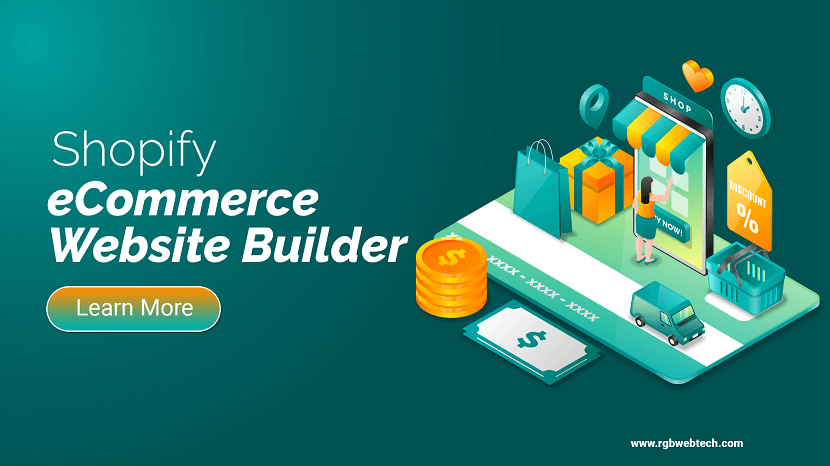
Introduction of Shopify
Shopify is a leading eCommerce website builder that empowers businesses of all sizes to establish and manage their online stores. With a user-friendly interface and a wide array of customizable themes and templates, Shopify simplifies the process of creating professional and visually appealing online stores. It provides a comprehensive suite of features, including inventory management, secure payment options, order fulfillment, and customer support tools. Shopify offers seamless integration with numerous third-party applications, enabling businesses to enhance their store's functionality and scalability. Its robust analytics and reporting tools help businesses gain valuable insights and make data-driven decisions. With its extensive range of features and user-friendly interface, Shopify is a go-to platform for anyone seeking to launch and grow their eCommerce business.
Table of Article Contents
- How does Shopify work?
- Pros and cons of Shopify
- What can you sell on Shopify?
- What is Shopify POS (Point of Sale)?
- Alternatives of Shopify
- FAQ - Shopify Online Store
- Final Verdict Shopify
How does Shopify work?

Shopify works as an all-in-one eCommerce website builder, providing businesses with the tools they need to create and manage their online stores. Here's a simplified overview of how Shopify works:
1. Sign up and create a store: To get started, you sign up for a Shopify account and go through the setup process. This involves selecting a store name, customizing the design with themes and templates, and adding products.
2. Product management: With Shopify, you can easily add, edit, and organize your products. You can upload product images, set prices, manage inventory, create product variations, and categorize items into collections.
3. Store customization:Shopify offers a range of customizable themes and templates. You can modify the design elements, such as colors, fonts, and layouts, to match your brand and create a unique online store.
4. Payment processing:Shopify integrates with various payment gateways, allowing you to accept online payments securely. It supports popular options like credit cards, PayPal, Apple Pay, and more.
5. Order management: When customers make purchases, Shopify helps you manage the orders efficiently. You can view and process orders, track shipments, send notifications to customers, and handle returns and refunds.
6. Marketing and SEO:Shopify provides built-in marketing tools and SEO features to promote your online store. You can create discount codes, run marketing campaigns, optimize product pages for search engines, and integrate with social media channels.
7. Apps and integrations:Shopify offers an extensive app store where you can find additional functionalities and integrations. These apps can enhance your store's features, such as email marketing, customer support, analytics, and inventory management.
8. Analytics and reporting:Shopify provides detailed analytics and reports to track your store's performance. You can monitor sales, visitor behavior, conversion rates, and other key metrics to make data-driven decisions and optimize your business strategy.
9. Security and reliability:Shopify ensures the security of your store and customer data. It includes features like SSL certificates, PCI compliance, and automated backups, providing a secure shopping experience.
10. Scaling your business:Shopify is built to scale with your business. Whether you're starting small or growing rapidly, it offers flexible plans and options to accommodate your needs, including advanced features like multi-channel selling and enterprise solutions.
Pros and cons of Shopify
Pros of Shopify
- User-friendly interface:Shopify is known for its intuitive and easy-to-use interface, making it accessible for beginners with no coding experience.
- Extensive customization options: It offers a wide range of customizable themes and templates, allowing businesses to create unique and visually appealing online stores.
- Robust features:Shopify provides a comprehensive set of features, including inventory management, secure payment options, order fulfillment, and customer support tools, enabling businesses to efficiently run their operations.
- App ecosystem: The Shopify App Store offers a vast selection of apps and integrations to enhance the functionality of your store, allowing you to add features and integrate with third-party tools.
- Reliable and secure:Shopify takes care of hosting, security, and updates, ensuring that your online store is reliable, secure, and PCI compliant.
- Mobile-responsive design:Shopify themes are optimized for mobile devices, providing a seamless shopping experience for customers on smartphones and tablets.
- Scalability:Shopify can accommodate businesses of all sizes, from small startups to enterprise-level operations, providing scalability and flexibility as your business grows.
- Excellent customer support:Shopify offers 24/7 customer support through various channels, including live chat, email, and phone, ensuring that assistance is available when you need it.
Cons of Shopify
- Transaction fees:Shopify charges transaction fees for every sale made through a third-party payment gateway, which can add up and impact profitability, although using Shopify Payments eliminates these fees.
- Cost: While Shopify offers various pricing plans, some businesses may find the subscription fees and additional costs for themes and apps to be relatively higher compared to other eCommerce platforms.
- Customization limitations: While Shopify provides a range of customization options, businesses with more complex or specific design requirements may find certain limitations in modifying the themes and templates.
- Learning curve for advanced features: While the basic setup is user-friendly, some advanced features may require technical knowledge or additional learning to utilize effectively.
- Migration challenges: If you already have an existing eCommerce platform and want to migrate to Shopify, the process may involve some complexities, especially when it comes to transferring data and preserving SEO rankings.
What can you sell on Shopify?
Shopify is a versatile eCommerce website builder that allows you to sell a wide range of products and services. Here are some examples of what you can sell on Shopify:
1. Physical products: This includes tangible items such as clothing, electronics, home goods, accessories, beauty products, and more. You can set up product variations, manage inventory, and fulfill orders for physical goods.
2. Digital products:Shopify supports the sale of digital products like e-books, software, music, videos, courses, and graphic designs. Customers can download or access these products electronically after purchase.
3. Services:Shopify enables businesses to sell services, such as consulting, coaching, graphic design, web development, event planning, and various professional services. You can create service listings and accept bookings or appointments through the platform.
4. Subscriptions: With Shopify's recurring billing feature, you can sell subscription-based products or services. This includes subscription boxes, memberships, software licenses, or any product that customers can subscribe to on a recurring basis.
5. Dropshipping:Shopify integrates seamlessly with dropshipping apps and platforms, allowing you to sell products from suppliers without having to handle inventory or fulfillment. You can create a store, choose products to sell, and the supplier ships the products directly to customers.
6. Handmade and crafts: If you create handmade products or crafts, Shopify provides a platform to showcase and sell your unique creations. This can include items like jewelry, artwork, ceramics, candles, and other artisanal products.
7. Wholesale and B2B:Shopify offers features for businesses that want to sell products in bulk or target other businesses as customers. You can set up wholesale pricing, create customer-specific catalogs, and manage bulk orders.
8. Events and tickets:Shopify allows you to sell tickets for events, concerts, workshops, or any kind of ticketed experience. You can manage ticket inventory, set pricing tiers, and handle ticket delivery or check-in through the platform.
These are just a few examples, and the flexibility of Shopify allows you to sell almost any type of product or service. Whether you have a physical store and want to expand online or you're starting a brand new eCommerce business, Shopify provides the tools and features to support a wide range of product offerings.
What is Shopify POS (Point of Sale)?
Shopify POS (Point of Sale) is a system that enables businesses to sell products and accept payments in-person, whether it's at a physical retail store, pop-up shop, trade show, or any other offline location. It seamlessly integrates with the Shopify eCommerce platform, providing a unified system for online and offline sales. Here are key features and benefits of Shopify POS:
1. Hardware integration:Shopify POS works with a range of hardware devices, including iPads, iPhones, Android devices, barcode scanners, receipt printers, and cash registers. This allows businesses to set up a complete point-of-sale system tailored to their needs.
2. Centralized inventory management: With Shopify POS, inventory management becomes centralized across online and offline channels. It automatically updates inventory levels in real-time, ensuring accurate stock counts and avoiding overselling.
3. Product and order management: You can easily add products, set prices, and organize them into collections within the Shopify POS system. It also enables you to create orders, apply discounts, and manage customer information for in-person transactions.
3. Omnichannel selling:Shopify POS enables businesses to seamlessly switch between online and offline sales. You can sell products from your online store in-store and vice versa, providing a consistent shopping experience for customers.
4. Payment options:Shopify POS supports various payment methods, including credit cards, debit cards, cash, gift cards, and digital wallets. It integrates with leading payment providers, ensuring secure and reliable payment processing.
5. Customer management: You can create customer profiles, track purchase history, and collect customer information at the point of sale. This data can be utilized for personalized marketing, loyalty programs, and customer support.
6. Offline capabilities: In case of an internet outage, Shopify POS has offline capabilities. It allows you to continue accepting payments and processing orders, which will sync with the Shopify platform once you're back online.
7. Reporting and analytics:Shopify POS provides detailed reports and analytics, giving insights into sales, inventory, and customer behavior. This data helps businesses make informed decisions and optimize their operations.
Shopify POS offers a seamless integration between your online and offline sales channels, providing a unified system for inventory management, order processing, and customer engagement. It simplifies the process of selling products in-person and ensures a cohesive experience for both merchants and customers.
Alternatives of Shopify
There are several alternatives to Shopify as eCommerce website builders. Here are some popular ones:
1. BigCommerce: BigCommerce is a scalable eCommerce platform that provides a comprehensive set of features to build and grow an online store. It offers a wide range of customizable templates and integrates with various third-party tools.
2. PrestaShop: PrestaShop is an open-source eCommerce platform that provides a flexible and customizable solution for building online stores. It offers a range of features, modules, and templates.
3. Squarespace:Squarespace is a popular website builder that includes eCommerce functionality. It offers visually appealing templates and a user-friendly interface to create and manage an online store.
4. Volusion: Volusion is a comprehensive eCommerce platform that provides tools for building and managing an online store. It offers customizable templates, marketing tools, and various integrations.
5. WooCommerce:WooCommerce is a powerful plugin for WordPress that allows you to turn your WordPress website into a fully functional eCommerce store. It offers a wide range of themes and extensions to customize your online store.
These are just a few alternatives to Shopify, and each platform has its own strengths and target audience. When choosing an eCommerce website builder, consider factors such as your business needs, budget, scalability requirements, customization options, and the level of technical expertise required.
FAQ - Shopify Online Store
Here are some frequently asked questions (FAQs) about Shopify as an eCommerce website builder:
1. What is Shopify?
Answer :Shopify is an eCommerce platform that allows businesses to create and manage online stores. It provides a user-friendly interface, a wide range of customizable themes, and a robust set of features to sell products or services online.
2. How much does Shopify cost?
Answer :Shopify offers different pricing plans to cater to various business needs. The plans range from Basic Shopify ($29/month) to Shopify ($79/month) and Advanced Shopify ($299/month). There is also Shopify Plus, an enterprise-level solution with custom pricing.
3. Can I use my own domain name with Shopify?
Answer :Yes, you can use your existing domain name or purchase a new one through Shopify. You can either connect your domain to your Shopify store or purchase a domain directly from Shopify.
4. Is Shopify secure for online transactions?
Answer : Yes, Shopify prioritizes security and provides SSL encryption for all online stores. It is Payment Card Industry Data Security Standard (PCI DSS) compliant, ensuring that customer payment information is securely handled.
5. Can I sell products in multiple currencies?
Answer : Yes, Shopify supports selling products in multiple currencies. This feature is available on Shopify's higher-tier plans and allows you to expand your business globally and cater to customers in their preferred currency.
6. Does Shopify integrate with third-party apps and services?
Answer : Yes, Shopify has an extensive App Store with a wide range of apps and integrations. You can find apps for various purposes, such as marketing, analytics, customer support, inventory management, shipping, and more.
7. Can I migrate my existing online store to Shopify?
Answer : Yes, Shopify provides migration tools and resources to help you transfer your store from other platforms. You can import your product data, customer information, and other relevant data to Shopify.
8. Does Shopify offer customer support?
Answer : Yes, Shopify offers 24/7 customer support through various channels, including live chat, email, and phone. They also provide extensive documentation, tutorials, and a community forum to help users navigate the platform.
9. Can I sell both physical and digital products on Shopify?
Answer : Yes, Shopify supports the sale of both physical and digital products. You can create product listings for physical items with inventory management features, and sell digital products by offering downloadable files or access codes.
10. Does Shopify provide marketing and SEO tools?
Answer : Yes, Shopify offers built-in marketing and SEO features to help you promote your online store. This includes options for creating discounts, running promotions, generating discount codes, optimizing product listings for search engines, and integrating with social media platforms.
Final Verdict Shopify
In summary, Shopify is a top-notch eCommerce website builder that offers a user-friendly interface, a wide range of customizable themes, and powerful features to create and manage online stores. It provides scalable solutions for businesses of all sizes, with reliable security measures for online transactions. While the cost and specific needs of a business may vary, Shopify's extensive integrations, app ecosystem, and strong customer support make it a popular choice. Overall, Shopify is a reliable and comprehensive platform that empowers businesses to establish and grow their online presence with ease.
If you found this article helpful, we encourage you to share it on your social media platforms—because sharing is caring! For more information about article submissions on our website, feel free to reach out to us via email.
Send an emailWritten by RGB Web Tech
Latest Technology Trends
Latest technology trends shaping the future, including AI advancements, blockchain innovation, 5G connectivity, IoT integration, and sustainable tech solutions. Explore breakthroughs in quantum computing, cybersecurity, augmented reality, and edge computing. Stay ahead with insights into transformative technologies driving innovation across industries and revolutionizing how we live, work, and connect.



